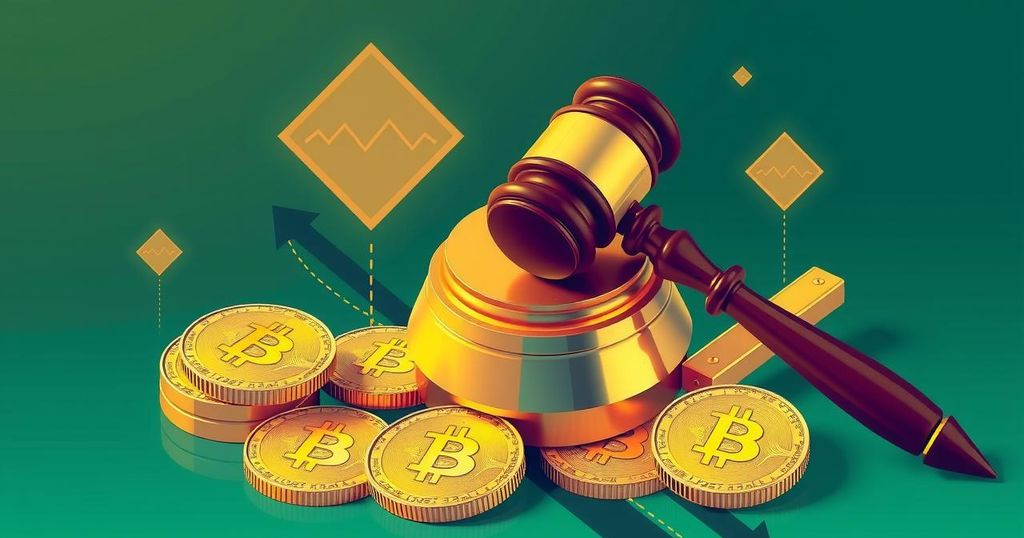House Advances Crypto Bills Amid Internal Dissent
The U.S. House of Representatives pushes forward on crypto bills, facing internal disagreements that shed light on the hurdles in establishing regulation for digital assets and their futures.
Internal Division and Legislative Timing Considerations
House Moves Forward with Cryptocurrency Bills Despite Pushback The U.S. House of Representatives made headlines recently by advancing a number of cryptocurrency bills, even facing some serious internal pushback. This step brings to light the ongoing struggle to establish a comprehensive regulatory framework for digital assets that many stakeholders have been calling for. The House Rules Committee’s decision to pass a rule allowing debates on these bills has sparked scrutiny, particularly from the Freedom Caucus, which has raised concerns about the implications of Central Bank Digital Currencies (CBDCs).
Crypto Market Stays Quiet Amid Legislative Moves
Speaker Emphasizes Importance of Legislative Action Speaker of the House, Mike Johnson, weighed in on the situation by stressing that despite the anticipated dissent among various members, it was essential to bring these bills forward for debate. Johnson pointed out that the timing of legislation plays a critical role in the progress of crypto policy. This statement clearly shows how key figures are backing policy advancements, understanding how vital these legislative actions are to the growth and future of the cryptocurrency industry.
Historical Context and Investor Sentiment Shifts
Market Responses Remain Unstable Amid Legislative Developments In the financial marketplace, immediate reactions to the House’s movement were rather muted. Cryptocurrency prices and trading volumes remained largely steady, suggesting that traders and investors are approaching these developments with caution and are waiting for additional legislative updates. With significant legislative actions around market structures and possible CBDC prohibitions still pending, the overall financial climate stays unchanged, which undoubtedly plays into investor psychology and regulatory clarity.
Division Within the Republican Party on Crypto Regulation
Recent Delays Highlight Legislative Challenges from the Past Historical patterns reveal that delays in legislative processes can often lead to volatility in digital asset sentiments and their evaluations. There’s a precedent for this, as past attempts to regulate cryptocurrencies faced considerable hurdles that have impacted key players in the space, including major coins like Bitcoin and Ethereum alongside various stablecoins. All eyes are on Congress as they seek to resolve differences in their approach, which may affect how digital asset security is classified and the relationship between governmental authorities and private sector entities in cryptocurrency.
Looking Ahead: The Future of Cryptocurrency Regulation
Internal Party Disagreements Expose Regulatory Challenges The recent pushback in advancing legislation surrounding cryptocurrency has underscored evident fractures within the Republican Party regarding the framework and parameters of the proposed bills. This dissension, compounded by the broader political climate, highlights just how difficult it is for lawmakers to reach a consensus on regulations for the rapidly changing cryptocurrency landscape. However, it’s clear that the dialogue surrounding cryptocurrency governance is far from settled, and lawmakers will continue their efforts to cement a robust regulatory framework for these assets moving forward.
In summary, the U.S. House’s recent advancement of cryptocurrency legislation highlights significant internal divisions, particularly among Republicans, amidst a backdrop of ongoing market stability. The importance of timing, investor sentiment, and the historical context surrounding cryptocurrency regulation comes to the fore, reminding us that the path ahead remains fraught with challenges. Legislators will therefore need to tread carefully as they navigate this complex landscape in a bid to create a coherent regulatory framework for the evolving digital asset industry.




Post Comment